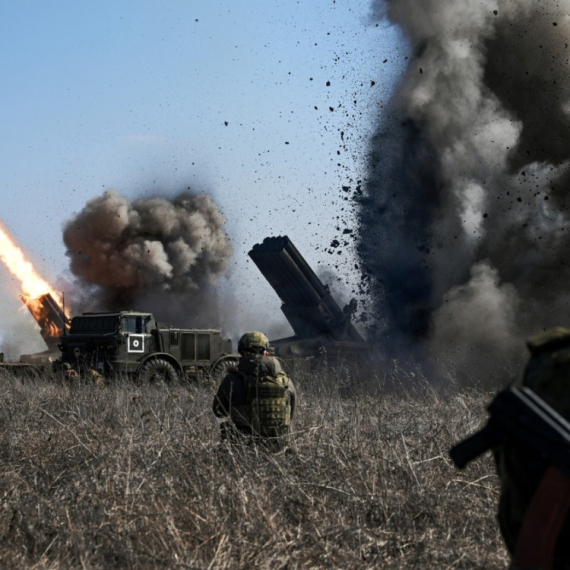"Gov't failed to prevent monopolies"
The creation of monopolies during the privatization process was the fault of the government, a corruption watchdog says.
Sunday, 14.10.2007.
12:29

The creation of monopolies during the privatization process was the fault of the government, a corruption watchdog says. The Anti-Corruption Council says that the state made a mistake during the privatization process by failing to monitor more closely the activities of the buyers of certain companies. "Gov't failed to prevent monopolies" The Council has delivered a report on the privatization of C Market to the government. “The Council has concluded that many of the participants in the privatization process broke the law which led to one successful company experiencing economic collapse and disappearing from the market by joining the trading network belonging to Delta,” Council member Danilo Sukovic told B92. “The privatization of C Market showed how that process could inflict great damage to society, while one man profited in an entirely illegal manner. And that’s the intention. That’s what the Council concluded and has put down on paper and wants investigated. It’s all based on quite a lot of evidence that the Council has received,” says Sukovic. The Council has concluded that Delta’s takeover of C Market has led to one company dominating the market. According to one of the people involved in the takeover, that chain now covers over 60 percent of legal retail sales. Sukovic reiterates that according to the Law on Competition, a company is declared dominant if it controls 40 percent of the market. “And at the end of the day, when everything is taken into account, you get a situation where you have a monopoly not just at Delta, but also in the dairy industry and other sectors. Therefore, the state has failed in its duty. Why has it failed? Whether it’s because of pressure from the owner, or because they didn’t set out the rules early enough, that’s another matter,” he explains. The privatization process at the end of the nineties and after 2000, led to a significant amount of capital lying in the hands of a few individuals at a time of general impoverishment. Serbia became a nation with a poor population and a few rich individuals. To illustrate this, on the Eastern Europe Top 100 rich list are four Serbs, while Slovenia, where the average salary is five times higher, doesn’t have a single entrant, it is claimed in the the Anti-Corruption Council report to the government.
"Gov't failed to prevent monopolies"
The Council has delivered a report on the privatization of C Market to the government. “The Council has concluded that many of the participants in the privatization process broke the law which led to one successful company experiencing economic collapse and disappearing from the market by joining the trading network belonging to Delta,” Council member Danilo Šuković told B92.“The privatization of C Market showed how that process could inflict great damage to society, while one man profited in an entirely illegal manner. And that’s the intention. That’s what the Council concluded and has put down on paper and wants investigated. It’s all based on quite a lot of evidence that the Council has received,” says Šuković.
The Council has concluded that Delta’s takeover of C Market has led to one company dominating the market. According to one of the people involved in the takeover, that chain now covers over 60 percent of legal retail sales. Šuković reiterates that according to the Law on Competition, a company is declared dominant if it controls 40 percent of the market.
“And at the end of the day, when everything is taken into account, you get a situation where you have a monopoly not just at Delta, but also in the dairy industry and other sectors. Therefore, the state has failed in its duty. Why has it failed? Whether it’s because of pressure from the owner, or because they didn’t set out the rules early enough, that’s another matter,” he explains.
The privatization process at the end of the nineties and after 2000, led to a significant amount of capital lying in the hands of a few individuals at a time of general impoverishment.
Serbia became a nation with a poor population and a few rich individuals. To illustrate this, on the Eastern Europe Top 100 rich list are four Serbs, while Slovenia, where the average salary is five times higher, doesn’t have a single entrant, it is claimed in the the Anti-Corruption Council report to the government.
















Komentari 2
Pogledaj komentare